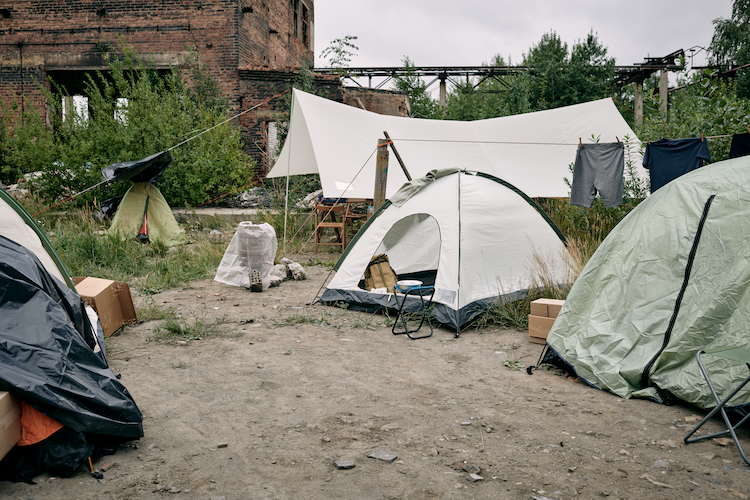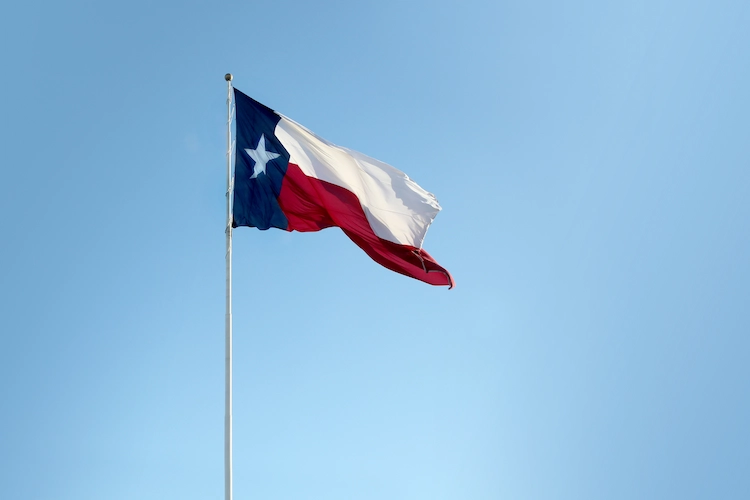SCOTUS to Hear Case Involving Homeless Encampments

The U.S. Supreme Court recently agreed to consider City of Grants Pass, Oregon v. Johnson, which will have a significant impact on U.S. cities seeking to address the ongoing homeless crisis. The key issue before the Court is whether penalizing homeless people for public camping, provided they don’t have access to shelter elsewhere, violates the Eighth Amendment’s ban on cruel and unusual punishment.
Facts of the Case
The Eighth Amendment to the Constitution provides that “[e]xcessive bail shall not be required, nor excessive fines imposed, nor cruel and unusual punishments inflicted.” In Martin v. City of Boise, 902 F.3d 1031 (9th Cir. 2018), amended on denial of reh’g, 920 F.3d 584 (9th Cir. 2019), the Ninth Circuit Court of Appeals held that “the Eighth Amendment prohibits the imposition of criminal penalties for sitting, sleeping, or lying outside on public property for homeless individuals who cannot obtain shelter.”
The City of Grants Pass, Oregon has ordinances that preclude homeless personsfrom using a blanket, a pillow, or a cardboard box for protection from the elements while sleeping within the City’s limits. The ordinances result in civil fines up to several hundred dollars per violation and persons found to violate ordinances multiple times can be barred from all City property. If a homeless person is found on City property after receiving an exclusion order, they are subject to criminal prosecution for trespass.
Six weeks after the Ninth Circuit’s decision in Martin, three homeless individuals filed a putative class action complaint against the City of Grants Pass arguing the City ordinances were unconstitutional. The district court certified a class of “involuntarily homeless” persons and subsequently held that, based on the unavailability of shelter beds, the City’s enforcement of its anti-camping and anti-sleeping ordinances violated the Constitution’s Cruel and Unusual Punishment Clause.It also enjoined enforcement of certain aspects of the ordinances, such as prohibiting the city from enforcing its anti-camping and anti-sleeping ordinances at night, as well as during the day without providing notice 24 hours in advance.
The Ninth Circuit largely affirmed. It extended Martin to civil citations and affirmed a class wide injunction against the City of Grants Pass’s enforcement of its ordinance prohibiting camping on public property.
Issues Before the Supreme Court
The City of Grant Pass appealed to the Supreme Court, arguing that the Ninth Circuit’s decision is “a judicial roadblock preventing a comprehensive response to the growth of public encampments in the West.” As noted in its petition for certiorari, the Ninth Circuit’s decision is at odds with other jurisdictions. The California Supreme Court and the Eleventh Circuit have both upheld virtually identical ordinances against similar challenges.
The lower court also disagree regarding whether the Eighth Amendment protects conduct related to status. Seven circuits and 17 state courts of last resort have held that the government may punish acts (like drug use and sex with minors) even if they can’t punish mere status (like being a drug addict or pedophile). Conversely, the Ninth and Fourth Circuits, as well as two state courts, have extended the Eighth Amendment to conduct that purportedly follows from a status.
The Supreme Court has agreed to weigh in. The justices will decide the following question: Whether the enforcement of generally applicable laws regulating camping on public property constitutes “cruel and unusual punishment” prohibited by the Eighth Amendment.
Oral arguments have not yet been scheduled, but will likely take place this spring. A decision is expected by the end of the term in June.
Previous Articles
Supreme Court to Address Racial Discrimination in Jury Selection
by DONALD SCARINCI on January 13, 2026While the U.S. Supreme Court has concluded oral arguments for the year, it continues to add cases t...
SCOTUS Agrees to Consider Merits of Birthright Citizenship Case
by DONALD SCARINCI on
On December 5, 2025, the U.S. Supreme Court agreed to review the constitutionality of one of Presid...
Supreme Court Allows Texas to Use Challenged Congressional Map
by DONALD SCARINCI on December 24, 2025
In Abbott v. League of United Latin American Citizens, 607 U.S. ____ (2025), the U.S. Supreme Court...
The Amendments
-
Amendment1
- Establishment ClauseFree Exercise Clause
- Freedom of Speech
- Freedoms of Press
- Freedom of Assembly, and Petitition
-
Amendment2
- The Right to Bear Arms
-
Amendment4
- Unreasonable Searches and Seizures
-
Amendment5
- Due Process
- Eminent Domain
- Rights of Criminal Defendants
Preamble to the Bill of Rights
Congress of the United States begun and held at the City of New-York, on Wednesday the fourth of March, one thousand seven hundred and eighty nine.
THE Conventions of a number of the States, having at the time of their adopting the Constitution, expressed a desire, in order to prevent misconstruction or abuse of its powers, that further declaratory and restrictive clauses should be added: And as extending the ground of public confidence in the Government, will best ensure the beneficent ends of its institution.





